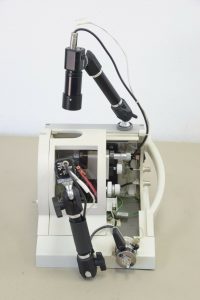
For example, a recent job posting by a State Department contractor sought to recruit a biometric technician experienced in using HIIDE and other similar equipment to assist veterinary staff and register local Afghans seeking employment in American embassies and consulates. In 2011, the Government Accountability Office critical the Pentagon for not doing enough to ensure these other monitoring agencies have easy access to information, warning that the military “is limiting the ability of its federal partners to identify potential criminals or terrorists.”īut the United States has not only collected information on criminals and terrorists the government also appears to have collected biometric data from Afghans helping diplomatic efforts, in addition to those working with the military.

The Department of Defense has also sought to share the biometric data collected by HIIDE with other government agencies such as the Federal Bureau of Investigation and the Department of Homeland Security. “In the future, the US military and diplomatic apparatus should carefully consider whether to deploy these systems again in such tenuous situations as Afghanistan.” “I don’t think anyone has ever thought about data privacy or what to do in case the system has fallen into the wrong hands, ”said Welton Chang, chief technology officer of Human Rights First, himself a former military intelligence officer. According to investigative journalist Annie Jacobsen, the The Pentagon had a goal collect biometric data on 80 percent of the Afghan population to locate terrorists and criminals. The US military has a long history of using HIIDE devices in the global war on terror and uses biometrics to help identify Osama bin Laden during the 2011 raid on his Pakistani hiding place.

The ISI is known to work closely with the Taliban. FORS 8020 Bioeconomy Seminar Dale Greene - 2009. “The Taliban do not have the equipment to use the data, but the ISI does,” said the former head of special operations, referring to Pakistani spy agency Inter-Services Intelligence.

military personnel, all of whom worried that sensitive data they contain could be used by the Taliban. An army special operations veteran said the Taliban may need additional tools to process HIIDE data, but expressed concern over Pakistan’s help in this area. The devices, known as HIIDE, for Handheld Interagency Identity Detection Equipment, were seized last week during the Taliban’s offensive, according to a Joint Special Operations Command official and three former U.S.


 0 kommentar(er)
0 kommentar(er)
